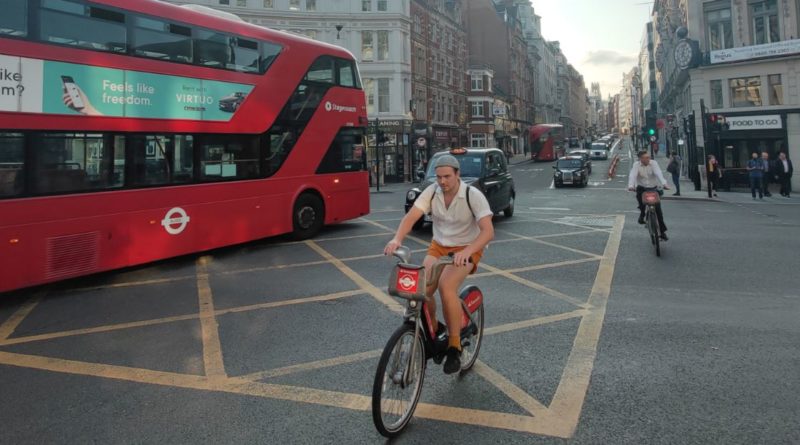TfL settlement sees London shed over 80% of active travel funding
The long-running standoff between Transport for London (TfL) and the Conservative Government this week settled on a £1.2bn funding offer, albeit one described as “far from ideal” in respect of a shortfall that will drive up public transport costs and see budgets slashed.
Cycling will not be immune from the funding pains that Labour Mayor Sadiq Khan is tasked with explaining to Londoners looking to slash transport costs in the face of rising inflation. The shortfall, according to Khan, is around £600 million, but will be enough to avert the worst case proposal of a managed decline of many tube and bus services.
The original spend for active travel schemes over the 2022/23 was originally set to be £414 million, but that annual figure will now come down to £80 million guaranteed.
Campaigners will be disheartened by the trimming of budgets, which comes at a time when ridership is up 24% on pre-Covid cycling rates.
Analysis of London’s official bike hire data show that January, February and March were markedly ahead of the year prior at 82.6%, 46.7% and 41% up, respectively.
Transport for London has struggled to recover its finances from the drastic decline in revenue brought about by Covid-19’s impact on ridership, which dropped as low as 4% of typical traffic during the 2020 lockdowns. At the present time it is believed ridership remains only at around 70% of 2019 rates, further impacting finances.
TfL Commissioner Andy Byford said: “The agreement with Government means that across the funding period, TfL expects to receive further base funding of around £1.2bn from Government until March 2024 and gives TfL ongoing revenue support should passenger numbers not recover at the rate budgeted, which is crucial at this time of ongoing economic uncertainty. It helps us avoid large-scale cuts to services, and means that we will commit £3.6bn to capital investment over the period, with around £200m of new capital funding from Government beyond previously budgeted sources like business rates, which were devolved to the Mayor in 2017. The agreement also allows us to increase our asset renewal programme to help ensure our network remains reliable, and means we can restore our Healthy Streets programme, making our roads safer, and more attractive for those walking and cycling.
“The support offered by Government left an unfunded gap in our budget, which we have been working hard to identify how we will fill. This work has made good progress and we are confident that we will achieve an outcome that allows us to balance our budget and maintain our minimum cash balance. We will need to progress with our plans to further modernise our organisation and make ourselves even more efficient, and we will still face a series of tough choices in the future, but London will move away from the managed decline of the transport network. We are grateful for the support of both the Mayor and the Government as we now set out to continue serving the capital and investing in safe and reliable services for the millions of people who need them.”



